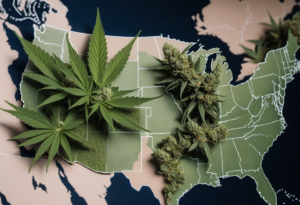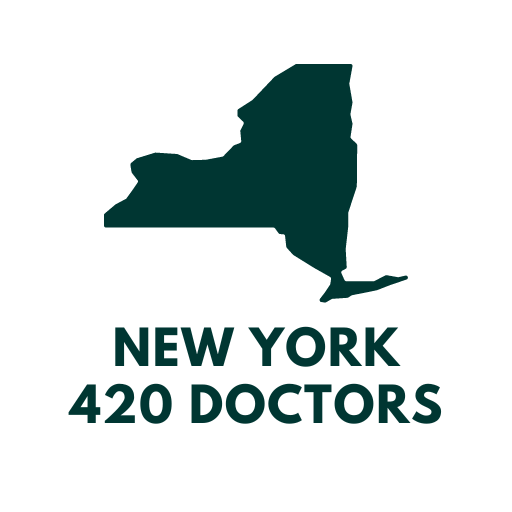Obtaining a Medical Marijuana Card (MMJ Card) in New York comes with several distinct advantages, making it more than just a means to legally use cannabis. With the legal landscape surrounding marijuana constantly evolving, particularly with the state’s legalization of recreational marijuana, many residents may wonder whether it’s still worthwhile to get an MMJ card. Despite recreational legalization, holding a medical marijuana card offers patients access to exclusive benefits such as legal protections, cost savings, and access to specialized products.
Here, we’ll explore the comprehensive benefits that New York’s medical marijuana program offers.
1. Higher Purchase and Possession Limits

One of the most notable advantages of having a New York Medical Marijuana Card is the increased purchase and possession limits compared to recreational users. Under New York’s recreational cannabis laws, adults aged 21 and older are limited to possessing 3 ounces of marijuana or 24 grams of concentrated cannabis . However, medical marijuana cardholders can possess up to a 60-day supply of medical cannabis, which is determined by the prescribing physician based on the patient’s medical needs.
This increased possession limit is particularly beneficial for patients who rely on cannabis for managing chronic conditions such as arthritis, cancer, or severe pain, ensuring they have enough medication to last between dispensary visits. This reduces the frequency of trips to dispensaries and allows patients to store larger amounts of cannabis for consistent use.
2. Cost Savings: Lower Taxes and Discounts

While recreational marijuana in New York is taxed at 13%, medical marijuana purchases are taxed at a significantly lower rate—about 7% . This 6% difference may seem small, but for patients who use cannabis regularly, the tax savings can accumulate over time, making medical cannabis more affordable than its recreational counterpart.
Beyond tax savings, many medical marijuana dispensaries in New York offer exclusive discounts to MMJ cardholders. Dispensaries often provide bulk purchase discounts, loyalty programs, and price reductions for medical patients, which can significantly lower the overall cost of cannabis. This financial benefit can make a substantial difference, particularly for patients managing long-term conditions requiring frequent use of medical cannabis.
3. Access to Medical-Grade Cannabis Products

Another significant benefit of holding a medical marijuana card is access to a wider range of medical-grade cannabis products. Medical dispensaries often offer higher-potency products tailored to patients’ specific needs. For instance, products available in medical dispensaries may have higher concentrations of CBD (cannabidiol) or other cannabinoids known for their therapeutic benefits.
Medical marijuana dispensaries in New York provide a variety of forms, including capsules, tinctures, oils, balms, and edibles, which may not be available in recreational markets. These products are often more rigorously tested and tailored to treat specific medical conditions, offering precise dosing that recreational users may not have access to. For patients with specific medical requirements, the ability to choose from a wider selection of cannabis products is a crucial advantage.
4. Legal Protections for Employment

Medical marijuana cardholders in New York enjoy legal protections that recreational users do not. New York’s labor laws, particularly Section 201-D, protect employees from discrimination based on their status as a medical marijuana patient. Employers are prohibited from firing or refusing to hire someone simply because they use medical marijuana off-duty.
This is especially important for individuals with chronic health conditions, as it ensures that they can continue to use medical cannabis without fear of losing their jobs. While employers can still enforce drug-free workplace policies, they cannot penalize employees solely for being medical marijuana cardholders. This protection is a critical factor for professionals who rely on medical cannabis for health reasons but do not want to risk their employment.
5. Home Cultivation Rights for Medical Patients

While recreational users in New York are subject to more restrictions regarding home cultivation, medical marijuana patients have the right to grow their own cannabis. Medical marijuana patients or their designated caregivers can grow up to six plants—three mature and three immature—for personal use.
Home cultivation is a cost-effective option for patients who require large amounts of cannabis or want to have control over the strains they use. This is especially beneficial for patients who use cannabis to manage long-term conditions, as they can ensure they always have an adequate supply of their preferred cannabis products. Additionally, growing cannabis at home allows patients to save money by reducing reliance on dispensaries.
6. Reciprocity in Other States

For patients who travel, holding a New York Medical Marijuana Card provides additional benefits in the form of reciprocity with other states. Some states recognize New York’s medical marijuana cards and allow patients to legally possess or purchase medical cannabis while they are visiting.
States that offer reciprocity include Arizona, Nevada, Maine, and Rhode Island, among others. This ensures that medical marijuana patients can continue their treatments while traveling, without worrying about legal repercussions or difficulties accessing their medication. While New York does not offer reciprocity for out-of-state medical marijuana cardholders, having an MMJ card from New York can open the door to legal medical cannabis access in other states.
7. Medical Marijuana for Patients Under 21

Unlike recreational cannabis, which is limited to individuals aged 21 and older, medical marijuana in New York is available to patients as young as 18. Minors can also access medical cannabis through the use of a designated caregiver. For younger patients who suffer from severe medical conditions such as epilepsy, autism, or cancer, medical marijuana offers a viable treatment option when other conventional treatments have failed.
This makes the medical marijuana program a crucial resource for families seeking alternative treatments for children and young adults with debilitating medical conditions. Caregivers play an important role in ensuring that these patients can legally and safely access cannabis treatments.
Conclusion
Although recreational cannabis use is legal in New York, holding a Medical Marijuana Card offers distinct advantages that extend far beyond the scope of recreational use. From higher possession limits and cost savings to legal protections and access to specialized medical products, medical marijuana cardholders enjoy a range of benefits tailored to their specific needs. Whether you’re dealing with chronic pain, managing a long-term condition, or looking for stronger legal protections, obtaining a medical marijuana card in New York ensures access to the full array of cannabis-based treatments available in the state.
For those who qualify, getting an MMJ card is a valuable step toward better, more accessible medical care.

